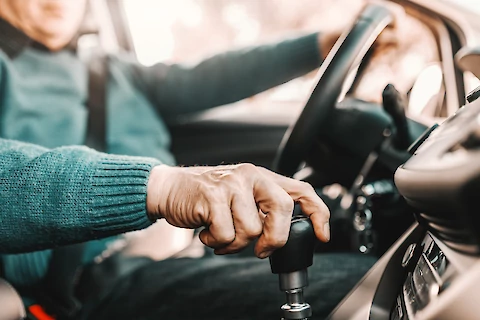
When should your parent or senior loved one stop driving? While assessing a senior's driving ability can be an awkward question to broach, it's important for families to consider the safety and well-being of their senior loved ones.
It's best to approach the subject preemptively in order to create a plan that everyone agrees with, instead of waiting for an accident or other issue to arise while they are behind the wheel. Here's a guide on assessing a senior's driving ability and how to know when they need to stop driving.
The Importance of Proactive Discussions
As your senior loved one gets older, their physical abilities can sometimes — not always! — decline. This may make it difficult for them to handle the motor skills and judgment necessary when driving a car. Additionally, seniors are at an increased risk of getting into traffic-related accidents compared to those in younger age groups. This is also due to their potential medical conditions and decreased reflexes.
Seniors may also have difficulty navigating unfamiliar roads or remembering how to drive somewhere they frequented in the past. Finally, since eye vision sometimes gets worse with age, some seniors experience trouble seeing well when driving at night or during inclement weather.
Assessing a Senior's Driving Ability
In order to address the safety of seniors on the road, it's crucial to assess their driving ability. This can be done by identifying certain warning signs, such as dents in vehicles or getting lost easily when driving somewhere that was previously familiar.
There are also tools available online that can help test the mental and physical abilities necessary for a senior to drive safely, as well as professional evaluations if needed.
Professional Tests for Whether a Senior Can Still Drive
In Florida, the state offers testing options for senior drivers. They can take these tests at any Florida driver's license service center for free!
Tips for Having the Conversation
The conversation around the safety of driving for a senior loved one can become emotionally charged. However, it is important to be honest and respectful when having this discussion. It is vital to acknowledge your loved one's feelings during the transition period so that they do not feel isolated. You also don't want them to feel that you're taking away their freedom to go where they want. That's why there should be alternate transportation and activities proposed to help create more positive outcomes from making these changes.
Alternatives for Seniors Who Do Not Drive
Fortunately, there are many options for seniors who no longer drive. These options help family members create safer and more secure routes of transportation. These alternatives can include professional caregiving services that provide door-to-door service, using public transit like buses or trains, taking advantage of ride-sharing apps and programs like Uber and Lyft, or using volunteer driving programs offered by churches or other non-profits in the Florida area.
Senior Helpers of Brevard County Offers Personalized In-Home Care
Senior Helpers of Brevard County's in-home care offers personalized services tailored to your loved one's specific needs. We can help live the life you want with the support of our licensed and trained professional caregivers who specialize in a variety of areas, including running errands for seniors and driving your loved one to important appointments and events.
Contact us today to learn more about how we can help seniors in Titusville, Orlando, Cape Canaveral, Cocoa, Cocoa Beach, Merritt Island, and Rockledge areas.